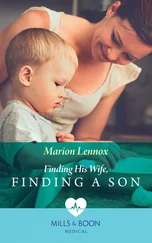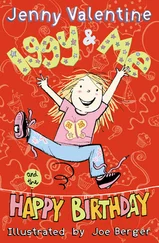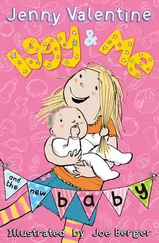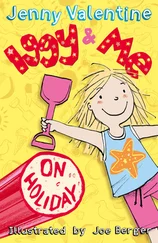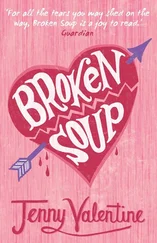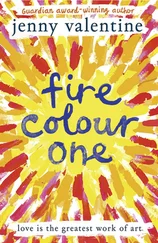I wonder how big the tree was then because its pretty old now, and then I wonder how big Jed’s tree on Primrose Hill will be in like two hundred years, and I wonder if anyone will find out about it and call it the Swain tree, because maybe Jed will be famous for something one day.
3. The City on a Sunday. Dad used to take me. There’s no one there. You can walk around and pretend you’re in one of those science fiction stories like The Day of the Triffids or 48 Hours Later. All the modern buildings reek of money and bad taste, and you can still feel the frantic stuff that goes on all week long, almost like the ghost of it is there on a Sunday, like the place is just exhausted with the pace of it all. And there are these really, really old bits too, all mixed in. You can be standing at some super modern glass box with your back to the oldest pub in London, and round the corner there’s a really narrow little lane called Wardrobe Street where they really did used to make wardrobes in about 17something, and it’s like time travel, street to street, and that’s a brilliant thing.
I didn’t know what Violet’s places might be, where she liked to spend her time, where she’d want to end up, and that’s a sad thing for nobody to know about a person. Before I die I’m going to leave strict instructions about where I want to spend the rest of time. I hope I won’t be so completely alone in the world that no one would remember to collect me after my funeral. It’s like those stories in the local paper about people who die and nobody notices for weeks and then they start smelling, and suddenly their neighbours remember they haven’t seen them for ages. And whenever I think about anyone living or dying all by themselves I end up thinking about my dad and wondering if he died alone, and if he thought about us when he died or if he is alive and ever thinks about us now.
I’ve only ever been to two funerals. The first one was my grandad’s – my mum’s dad – and I don’t remember it because I was about two, but Mum says I spent the whole time crawling around and barking like a dog.
The second one was this girl in my class called Angelique and she died when we were in year six. I think it was the Easter holidays, and she went somewhere like Spain with her mum and dad and died in the shower of carbon monoxide poisoning. They flew her home and the whole class went to her funeral. We all wanted to because she was really popular and a really nice person and everyone was gutted that she wasn’t ever coming back.
She was in a coffin made of bamboo or wicker or something, like a beautiful Angelique-shaped basket covered in pink blossom, and either side of her they had these silver buckets filled with sand and flowers. You got a candle when you came in and you lit it and put it in a bucket, so there were maybe a hundred candles surrounding her. The light was sort of eerie and full of life.
When the priest talked about commending Angelique to heaven, the flowers in some of the buckets all seemed to catch fire at the same time and you could hear this gasp go round the church like it was a sign or something, and nobody wanted to put the fires out. When Angelique’s dad went to pick up the coffin on the way out he leaned against it for support, like he was hugging her, and that really got to me.
After the funeral, back at Angelique’s house we had this kind of circle time thing where we all said something we liked about Angelique or told a funny story about her. They make you do circle time at school a lot when something bad happens, or sometimes just because they want to, and it can be OK and it can be pretty crap, depending, but that circle time at Angelique’s was just about the most sweet and touching thing ever. Everybody had something they really wanted to say, and Angelique’s mum and dad were crying and laughing at the same time, and you could see they were going to get by on those stories for years to come.
I doubt Violet’s funeral was much to write home about, seeing as she was the guest of honour and got left in a taxi. I doubt there was a circle time for her.
If we ever find my dad and he’s dead, I’m going to organise the biggest funeral you’ve ever seen and I’ll personally see to it that the flowers catch fire. We’ll play the best music, and everyone he ever knew and liked will be there and cry their eyes out and say really nice things about him. And afterwards, back at our house, we’ll have the best wake and nobody will want to leave. They’ll look after Mum and make sure she’s OK, and phone her every week, instead of being too embarrassed to say anything or ever call her up because there isn’t a body and they’re a bit busy with work and they were his friends really, not hers.
When Dad first went missing there was a big, big fuss. Not just Mum running around pulling her hair out (eight and a half months pregnant) and the police showing up all the time, and Mercy yelling and slamming doors and shagging whoever’d have her. For a while everyone was interested and he was all over the press – all the papers and the telly for weeks. There was this same photo of him everywhere, one that none of us can stand to look at now, firstly because it reminds us of everything going wrong, and secondly because he looks so damn happy in it and that must have been an act.
I remember the exact moment Mum realised he had actually disappeared and wasn’t just somewhere sleeping things off for longer than usual, or stuck in the office on a deadline without calling, which often happened. I can see her now, rubbing her massive belly with this weird sort of half smile that she wore practically the whole time she was pregnant with Jed, answering the phone and then turning suddenly to dust. I was sitting at the kitchen table, waiting for Dad to come home so there would be another boy in the house, and I was watching her. She was really beautiful when she picked up the phone – in my memory she sort of glows and the lighting is soft and everything – and by the time she put it down, maybe two and a half minutes later, she was grey and old and looked like she was going to throw up.
(She did, all night and the next day and they had to take her into hospital because she wasn’t keeping anything down and she hadn’t slept and everyone was worried about the baby.)
The phone call was from a friend of Dad’s at The Times called Nigel Moon, who said the police had found our car in a field somewhere in Hampshire, and was his passport at home or was there a chance he had it with him, and he thought she should know. He got to her about five minutes before the police because while she was throwing up in the downstairs loo there was a knock on the door and it was them. (Dad’s passport was in a drawer upstairs, next to Mum’s.)
And after the big, big fuss there was nothing. In a few weeks people began to get bored or forget, and they drifted away and left us to our own private chaos. Mum had Jed and they both cried a lot in her room, Mercy stopped speaking for maybe three months, and I walked around lost and got into a lot of fights.
There’s a definite stigma attached to you when someone in your family goes missing like that. A big question mark, a skeleton in your cupboard, a dirty shadow. In the beginning when everyone was all keen and interested, actually they didn’t care at all, they were just looking for something nasty, for dad’s guilty secrets, for the cracks in our family that must have opened into massive caverns and swallowed him whole.
Was he having an affair? Was he mixed up in anything illegal? Was he murdered? Did we do it? Did he kill himself? Why? Was he having an affair? And round and round like a dog chasing its own tail until we put the telly in the cupboard and took the batteries out of the radio and stopped looking at newspapers or answering the door or going out.
Читать дальше


